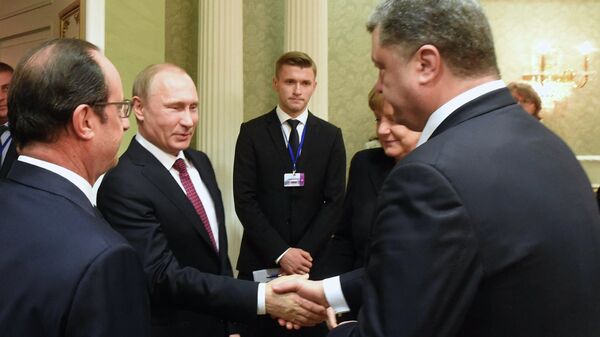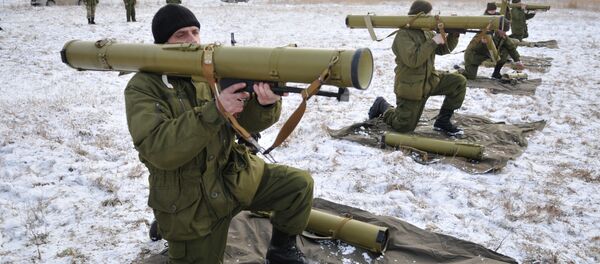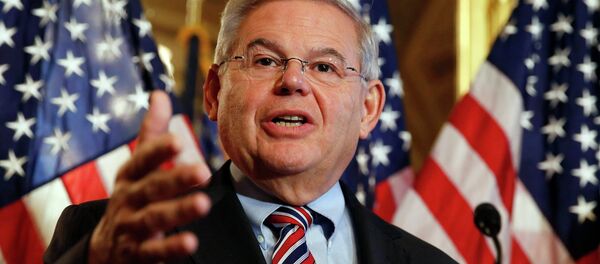"It seems to me that what is written in the agreement will be less important than what transpires next on the ground,” Senior Fellow at American University in Moscow William Dunkerley told Sputnik on Thursday.
On Thursday, the leaders of Ukraine, Germany, Russia, and France and the representatives of Donetsk and Luhansk, negotiated a 13-point reconciliation deal including to end the military confrontation between the government forces and independence supporters in eastern Ukraine. The agreement calls for a ceasefire, the drawback of heavy weaponry on both sides of the conflict, and constitutional reforms in Ukraine.
Earlier in the week, the US House of Representatives introduced a bill that would authorize $1 billion for training, equipping, and providing lethal defensive military aid to Ukraine through September 2017. Meanwhile, US Department of State Secretary John Kerry said the United States would ease Western sanctions imposed on Russia for its alleged involvement in the Ukrainian crisis “when the Minsk agreements of September 2014, and now this agreement, are fully implemented.”
“[T]he [Minsk] agreement is reasonable and fair enough under the circumstances, but obviously the key variable will be sustainability of political will on all sides for effective implementation, and on that we will just have to wait and see,” Director of the Russia and Eurasia Program at the Center for Strategic and International Studies Andrew C. Kuchins told Sputnik.
Stratfor Eurasia analyst Eugene Chausovsky told Sputnik it is important for Ukraine and Russia to follow through with Thursday’s Minsk agreements if either side wants to achieve a peaceful end result.
“Ultimately I think it will come down to the implementation of the agreements…” Chausovsky said. “Throughout these past few months there’s been a continuous level of fighting, so ultimately this [Minsk] agreement will be about are both sides willing to actually implement the measures.”
“Russia could start to face more sanctions from the West, there could be a greater security build up from the Western side including potentially arming Ukraine. I think that Russia could consider to be more active in a military sense,” Chausovsky said. “Either way I can see a potential escalation of the conflict if these Minsk agreements are not implemented.”
The United States and its allies have imposed multiple sanctions against Russia’s banking, energy and military sectors, as well as on several high-profile individuals over Moscow’s alleged involvement in Ukraine’s internal affairs. However, Russia has repeatedly denied these accusations and has argued that the warring sides should establish direct dialogue.




